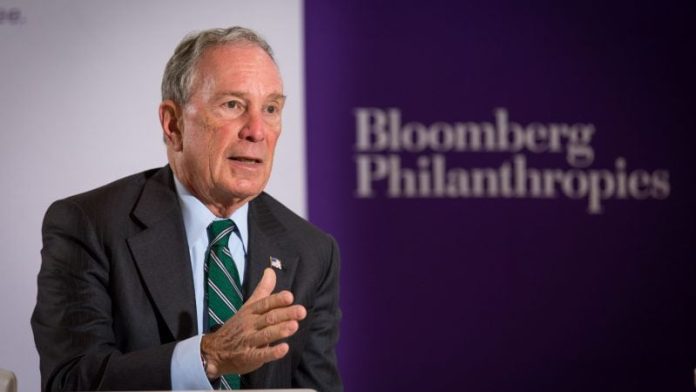Former mayor of New York Michael Bloomberg has announced packages of $70 million and $42 million respectively to help US smart cities fight climate change and develop their usage of data. The new disbursements will be made via his Bloomberg Philanthropies charity.
A year after President Trump’s decision to withdraw from the Paris Agreement, Bloomberg Philanthropies said it will select 20 city mayors as part of its American Cities Climate Challenge that have demonstrated “leadership and commitment” to the Paris Agreement, and a 26 per cent reduction in greenhouse gas (GHG) emissions from 2005 levels.
The scheme is open to the 100 most populous cities in the US, which can deliver 20 per cent of the remaining Paris Agreement target, equivalent to closing 48 coal-fired power plants. The programme focuses specifically on transportation and building sectors, which contribute 90 per cent of citywide emissions and are areas over which mayors have significant authority.
The first round of applications opens on June 19 and closes on July 18; mayoral applicants must register by signing the We Are Still In declaration, which has more than 2,600 signatures from US city halls, state houses, boardrooms and college campuses. Selected US smart cities will participate in a two-year programme to “deepen the impact of their efforts” to tackle climate change. The $70 million investment includes funding from a philanthropic partner, it said; additional partners may join.
Bloomberg, the United Nations special envoy for climate action, said: “Mayors don’t look at climate change as an ideological issue. They look at it as an economic and public health issue. Regardless of the decisions of the Trump administration, mayors are determined to continue making progress. [We] will work with our country’s most ambitious mayors to help them move further, faster towards achieving their climate goals.”
Bloomberg Philanthropies will provide smart cities with technical assistance, resources, and support worth “more than $2.5 million per city”. Resources include a philanthropy-funded ‘climate advisor’, leadership development support, implementation coaching, rapid response, and peer-to-peer learning and networking.
Meanwhile, in a response to the Trump administration’s “direct assault on facts and data”, Bloomberg has pledged additional $42 million investment in his charity’s What Works Cities programme to enhance cities’ use of data and evidence.
“As Washington has grown more dysfunctional, American cities have grown more dynamic. Mayors in both parties are leading where Washington won’t, enthusiastically using data, and working with members of other political parties, to improve government performance for their citizens,” said Bloomberg in letter that attended Bloomberg Authorities’ latest annual report.”
Bloomberg also decried the rise of “alternative facts” and the current unprecedented “tolerance for dishonesty” in US politics in a commencement speech at Rice University, where he also encouraged graduates to “follow the data, wherever it leads.”
In 2017, Bloomberg Philanthropies launched a $200 million Bloomberg American Cities Initiative to give US mayors and city halls the tools to collaborate and innovate to solve issues of climate change, inequality, and productivity, including the capacity to use data more effectively. The What Works Cities programme, which has focused on 100 cities of all sizes, is a part of this initiative.
Last year, Bloomberg Philanthropies invested $702 million in nearly 480 cities in more than 120 countries.

